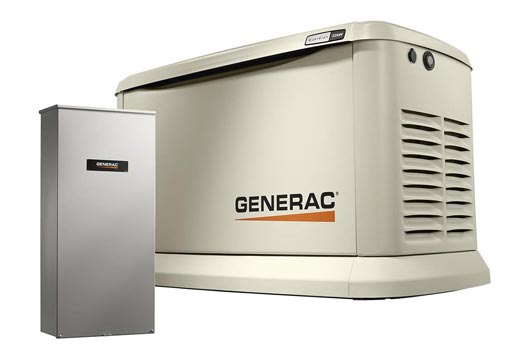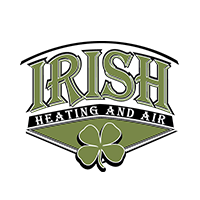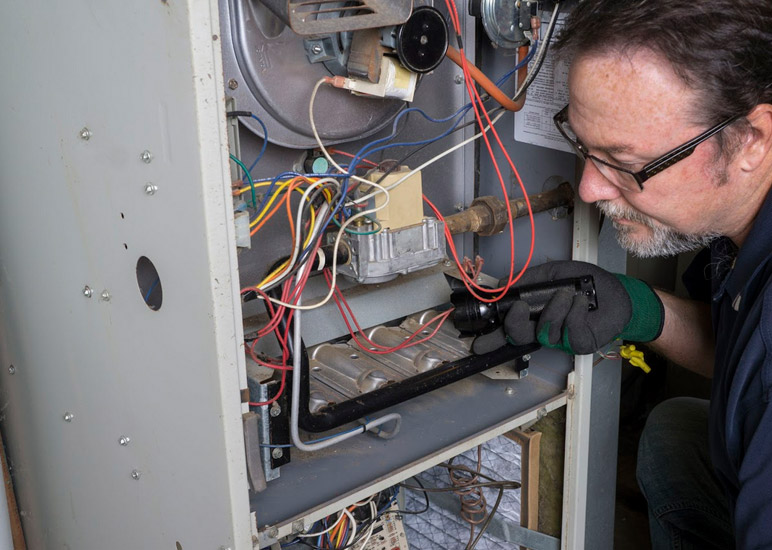 Power outages during the cold season in Tracy, CA, can quickly shift from a minor inconvenience to a significant concern, especially if your home relies on an electric furnace for warmth. Ensuring you have a backup generator to keep your furnace running during these times is crucial. But with a myriad of generator sizes available, how do you determine the right one for your furnace? Let’s unravel this puzzle step by step.
Power outages during the cold season in Tracy, CA, can quickly shift from a minor inconvenience to a significant concern, especially if your home relies on an electric furnace for warmth. Ensuring you have a backup generator to keep your furnace running during these times is crucial. But with a myriad of generator sizes available, how do you determine the right one for your furnace? Let’s unravel this puzzle step by step.

Understanding Your Furnace’s Power Needs
Firstly, it’s essential to know the wattage requirement of your furnace. You can usually find this information in the owner’s manual or on the furnace’s label. Remember, the wattage reflects the amount of power the furnace uses at its peak.
Calculating the Right Generator Size
Armed with the knowledge of your furnace’s power requirements, the next step involves some basic arithmetic. Pinpointing the right generator size ensures optimal performance, avoids overloading, and provides peace of mind during power disruptions. Let’s walk through the essential factors to consider:
Starting vs. Running Wattage
Appliances, including furnaces, often require more power at startup than during regular operation. Factor in both the starting and running wattage when determining generator size.
Add Other Essential Appliances
If you’re considering running other crucial appliances alongside your furnace (like refrigerators or medical equipment), sum up their combined wattages.
Safety Margin
It’s always wise to opt for a generator that can produce an additional 20% more power than your calculated need. This buffer ensures your generator isn’t running at maximum capacity continuously, which can prolong its lifespan.
Exploring Different Generators: Your Options Unveiled
With the frequent and sometimes unexpected power outages in certain areas, having a reliable generator has become a modern necessity. However, there isn’t a one-size-fits-all solution. The type of generator you might need depends on several factors, including the duration of power outages, the number of appliances you wish to power, and, of course, your budget. Let’s explore some of the common types of generators:
Portable Generators
These are the most common type for home use. They’re versatile, movable, and ideal for short-term power outages. However, they require manual setup during each use, and you’d also need to store fuel safely.
Standby Generators
These are permanently installed outside your home and can automatically provide power during an outage. They are more expensive than portable ones but offer convenience as they can detect power outages and turn on automatically.
Inverter Generators
These are a newer type of generator, providing cleaner energy that’s suitable for sensitive electronic devices. They are typically quieter and more fuel-efficient than traditional portable generators.
Solar Generators
Eco-friendly and silent, solar generators use solar panels to capture the sun’s energy, which is then stored in batteries. They’re best for those who want a green alternative, though their power output might be limited compared to gas-powered options.
Watt’s the Conclusion?
Power outages can’t always be predicted, but being prepared ensures comfort and safety. By accurately gauging your furnace’s power needs and coupling it with the right-sized generator, those chilly winter nights will remain just a beautiful aspect of the season, not a cold challenge to tackle.If you’re still unsure what generator best suits your home or business, turn to Irish Heating and Air Conditioning for expert generator advice.





